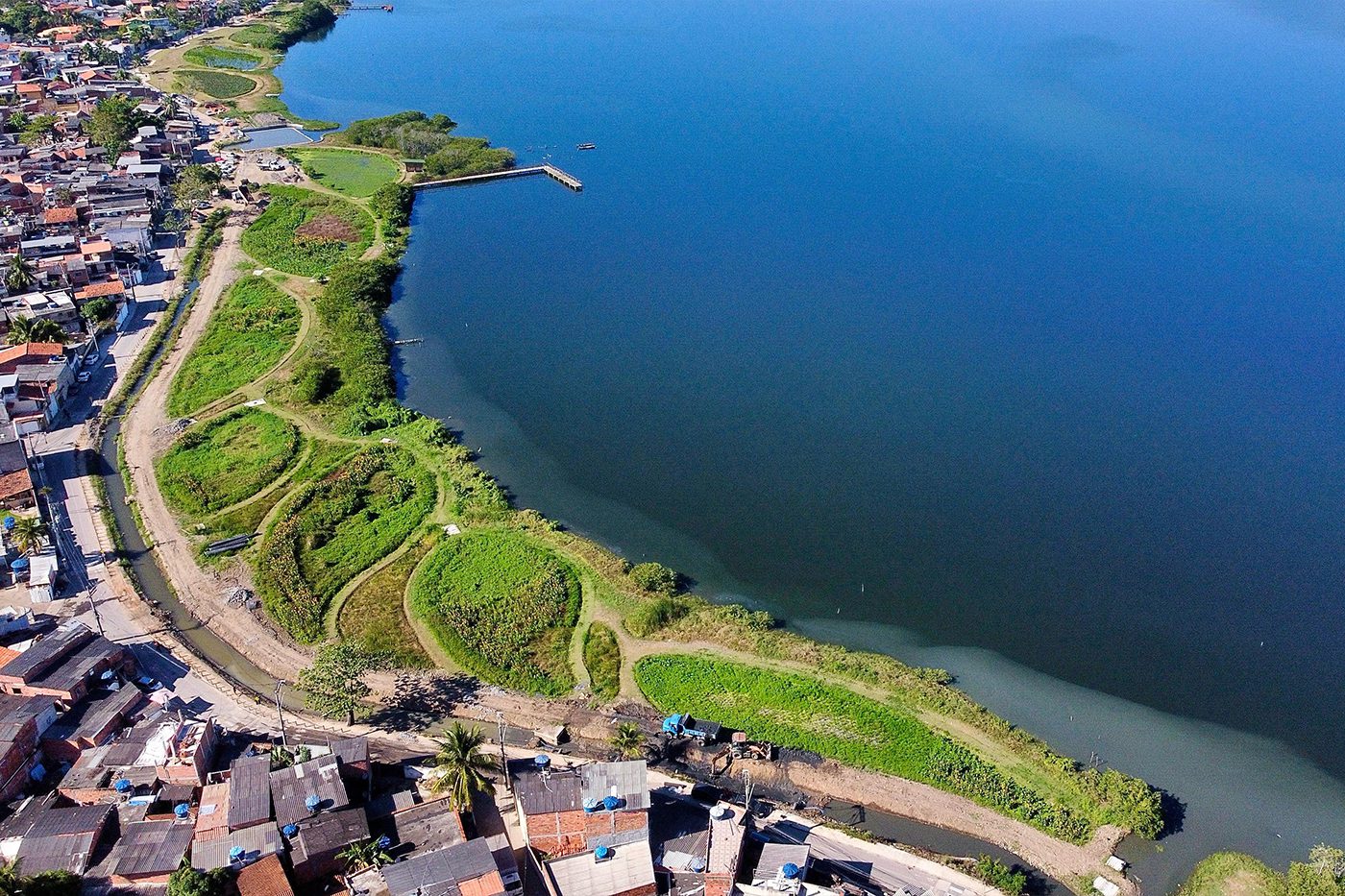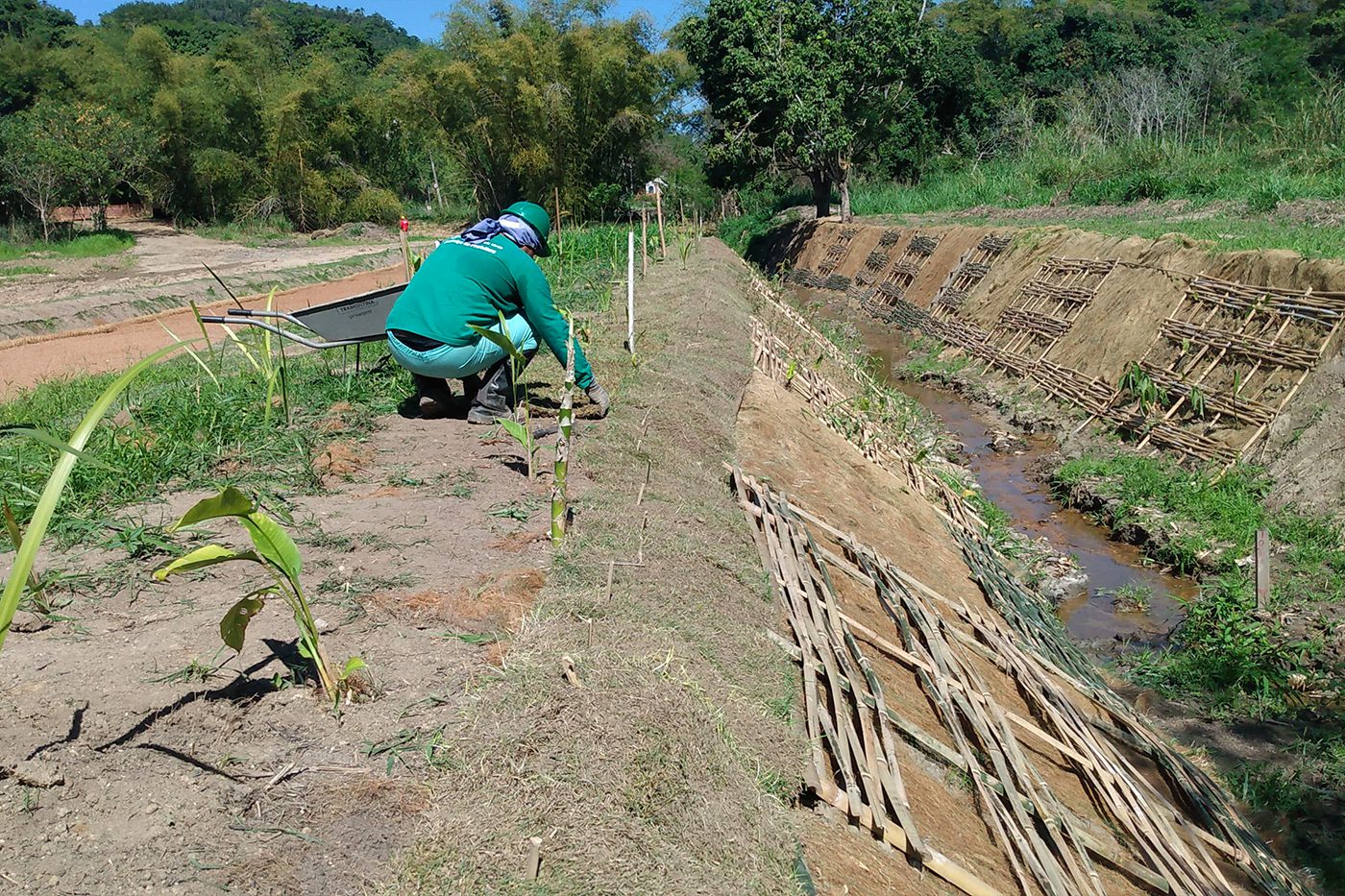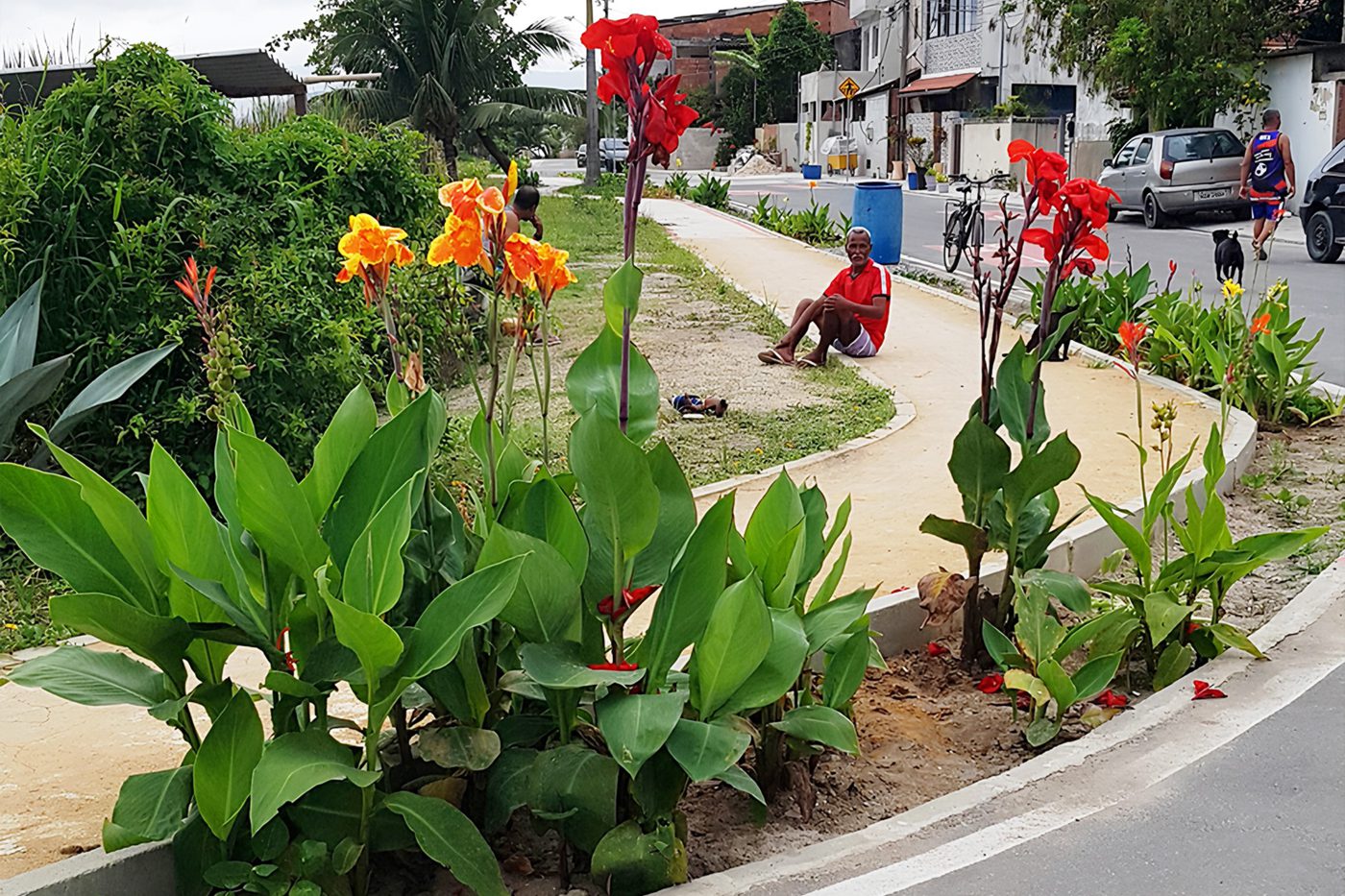Climate change in recent decades has posed new challenges to how cities are planned and managed. The increasing frequency of extreme events, such as heat waves, flash floods, prolonged periods of drought, and rising sea levels, highlights that the traditional urbanization model, based on rigid and poorly adaptable structures, no longer offers adequate responses to current demands. In this scenario, a new approach to urban management is urgently needed, based on systems thinking, capable of integrating mitigation and adaptation strategies, integrating residents as co-protagonists, and reconciling human development with environmental balance.
It is in this context that projects that utilize Nature-Based Solutions (NbS) stand out. These solutions are based on the principle that natural processes can be incorporated into urban dynamics to offer long-term social, economic, and environmental benefits.
Different types of NBS, such as constructed wetlands, bioswales, bioretention and detention basins, river rewilding, urban sponge forests, among others, help urban environments absorb, store, and reuse rainwater, reducing flooding and improving aquifer recharge. Green spaces, linear parks, green roofs, rain gardens, and ecological corridors become strategic elements, while simultaneously promoting population well-being, increasing soil permeability, conserving biodiversity, and contributing to thermal comfort. In this way, ecosystem services—such as climate regulation, air purification, protection of fauna and flora, and the provision of recreational spaces—are continuously enhanced, expanding collective gains.
The proposed workshops seek to explore precisely this transformative potential. Using a fictional city as a starting point, participants will be invited to analyze urban challenges and propose different NBS, exercising creativity and integrated thinking when faced with complex problems. The process will be overseen by the Sustainable PRO team, which will present the fundamental concepts for implementing NBS, including bioengineering techniques, ensuring that the solutions developed are not only technically feasible but also consistent with social and environmental needs.
More than an academic exercise, the workshops aim to awaken a critical and innovative perspective in participants, demonstrating that adapting to climate change depends not only on large-scale engineering projects, but also on small, multiple interventions, inspired by the very logic of nature and the involvement of residents as co-protagonists of the projects. Thus, each proposal will contribute to reinforcing the idea that greener, more permeable, and integrated cities are also more humane cities, prepared to face the climate challenges of the present and future. Bonus: POP Book.
Free
Vacancies: 25 per class (2 classes)
Each participant will receive 1 book about Parque Orla Piratininga as a gift.
Class 1
6.10 – from 2pm to 5pm
Class 2
7.10 – from 3pm to 6pm
Registration:
Registrations must be made by form available here.
Registration will be open until one day before the workshop starts.
Selection will be made in order of registration.




